Fermentation targets more eco-friendly ingredients
14 Oct 2019Plant extracts like natural sweeteners and antioxidants make up a tiny fraction of the plants from which they are derived, meaning a relatively large land and water footprint. Could producing these compounds via fermentation be more environmentally and socially responsible?
Using fermentation of engineered yeast, companies are already producing ingredients like stevia extracts, resveratrol, and even animal-free dairy products that are identical to their nature-derived equivalents. The process works by modifying yeast to have enzymes that produce a precise target compound when fed glucose and nutrients.
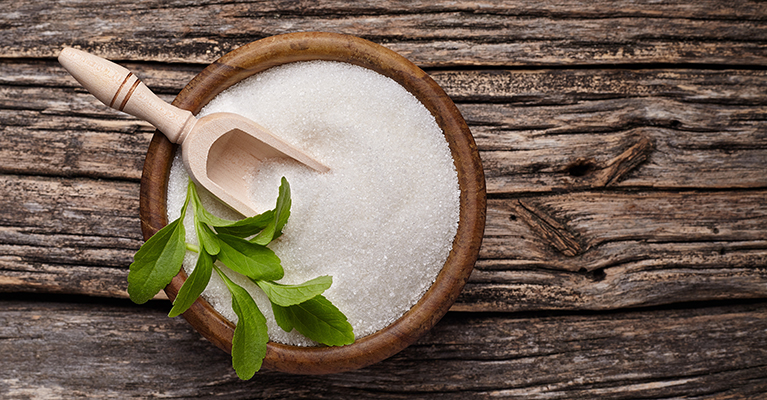
Although the yeast is modified, companies working in the area are keen to stress that the process does not result in genetically modified ingredients as the yeast is completely removed and doesn’t end up in the final product. In fact, the resulting ingredient is indistinguishable from that produced conventionally.
Theoretically, there is no limit to which molecules can be targeted, but it is expensive and time-consuming to figure out how to reach the target compound in the first place, and it is difficult to scale up, meaning that ingredients made via fermentation tend to be expensive. That is why many companies specialised in making ingredients in this way focus on niche ingredients, such as those that are expensive and labour intensive to produce, and those that are difficult to source in large quantities.
Swiss-based Evolva Holding is one company that specialises in such ingredients, with a portfolio that includes flavours like vanillin, the red wine antioxidant resveratrol, and sought-after aroma compounds from orange (valencene) and grapefruit (nootkatone), for which demand outstrips supply. One kilogram of nootkatone, for example, requires 400 tonnes of grapefruit to produce. It can be used as a flavour, fragrance or even as a highly effective insect repellent. Growing such ingredients in the lab clearly has potential to extend their use, while using sugar and yeast to produce targeted compounds saves an enormous quantity of water, as well as precious agricultural land.
And the environmental benefits of fermentation-derived ingredients increasingly have entered the narrative. Perfect Day, for example, is a US-based producer of animal-free dairy proteins, which highlights the environmental cost of animal agriculture, and describes its products as having “less impact on the earth”. In summer 2019, it launched three animal-free ice cream varieties, and it has inked a deal with ADM to produce more dairy-free milk ingredients on a large scale.
Zero-calorie plant-derived sweeteners are the holy grail for many food and drink companies, making them another major target area. Natur Research Ingredients and Magellan Life Sciences both make a brazzein sweetener through fermentation, allowing it to make much larger quantities of the sweet protein than are found in nature. Brazzein comes from the West African oubli plant, but extraction is expensive – and naturally available quantities of the sweetener are insufficient for commercial use. What is more, cultivating the oubli plant is prohibited by biodiversity laws so scaling up via traditional agriculture is not possible.
Also in sweeteners, Evolva is working with companies like Cargill and DSM to produce some of the most sought-after sweet compounds in stevia via fermentation.
This process raises a problem for food companies, however: is an ingredient that is developed in the lab equivalent to one from nature, even if it is identical on a molecular basis? Ultimately, the answer depends on why the individual seeks naturally derived ingredients in the first place. If they are looking to make choices that respect the natural environment, the lab-grown ingredient could indeed be the more responsible option.
Related news

Plastic packaging reduction requires industry rethink
6 Jan 2023
The food and beverage sector is calling for industry-wide collaboration and business model updates to reduce the environmental impact of plastic packaging.
Read more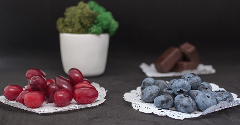
Misleading nutrition claims mask true sugar levels in baby food
5 Jan 2023
Some baby and toddler food and drink products, sweetened with fruit concentrate, contain up to four teaspoons of sugar per serving yet are marketed as having ‘no added sugar’, according to a survey by Action on Sugar.
Read more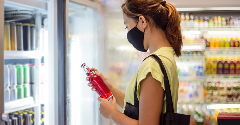
Asian beverage brands deal with rising costs
4 Jan 2023
Decreasing bottle sizes or increasing prices? Asian beverage brands are finding “creative approaches” to manage rising costs, according to industry analysts.
Read more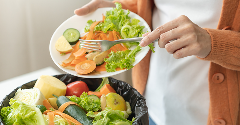
Preserving the freshness of food to fight waste
3 Jan 2023
Several companies are producing products that absorb ethylene, the hormone that causes food to ripen, in attempt to reduce food waste.
Read more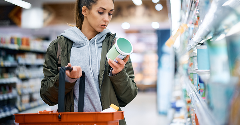
Value-seeking US consumers cut back on food spending
2 Jan 2023
Cheaper items, smaller sizes, and shorter grocery lists: inflationary effects coupled with a global long-term recession are set to continue shaping food spending habits, according to a recent Rabobank report.
Read more
Opportunities grow for lower-caffeine coffee
23 Dec 2022
Many consumers want the mental focus of caffeine without the jitters, prompting a wave of product development such as “half caffeine” ground coffee or ready-to-drink (RTD) cold brew blended with relaxing botanicals.
Read more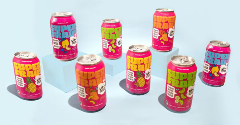
Superfrau upcycles liquid whey for energy drinks
22 Dec 2022
US company Superfrau turns surplus whey into sustainable, upcycled-certified dairy products for the recovery drinks market.
Read more
Malaysian brand Nanka brings jackfruit range to Europe
21 Dec 2022
Malaysian brand Nanka is expanding to new Asian and European markets with its fast and ready-to-eat plant-based products based on jackfruit.
Read more
Is the UK on target to meet its 2025 Plastics Pact?
20 Dec 2022
Major food industry players, including Arla, Kerry, PepsiCo and TerraCycle, have signed the UK’s voluntary Plastic Pact to reduce plastic from the supply chain – but are they on track to meet their targets?
Read more
Chinese food brand wants to give customers ‘the full experience’
16 Dec 2022
Food brand Xiao Chi Jie is revamping Chinese cuisine for the modern American consumer. The Washington-based company sells regional Chinese specialties like soup dumplings, noodle kits, and barbeque skewers direct-to-consumer in the US.
Read more


